Learn the hidden meaning behind the Fallout show’s inclusion of a fridge during a pivotal backstory.
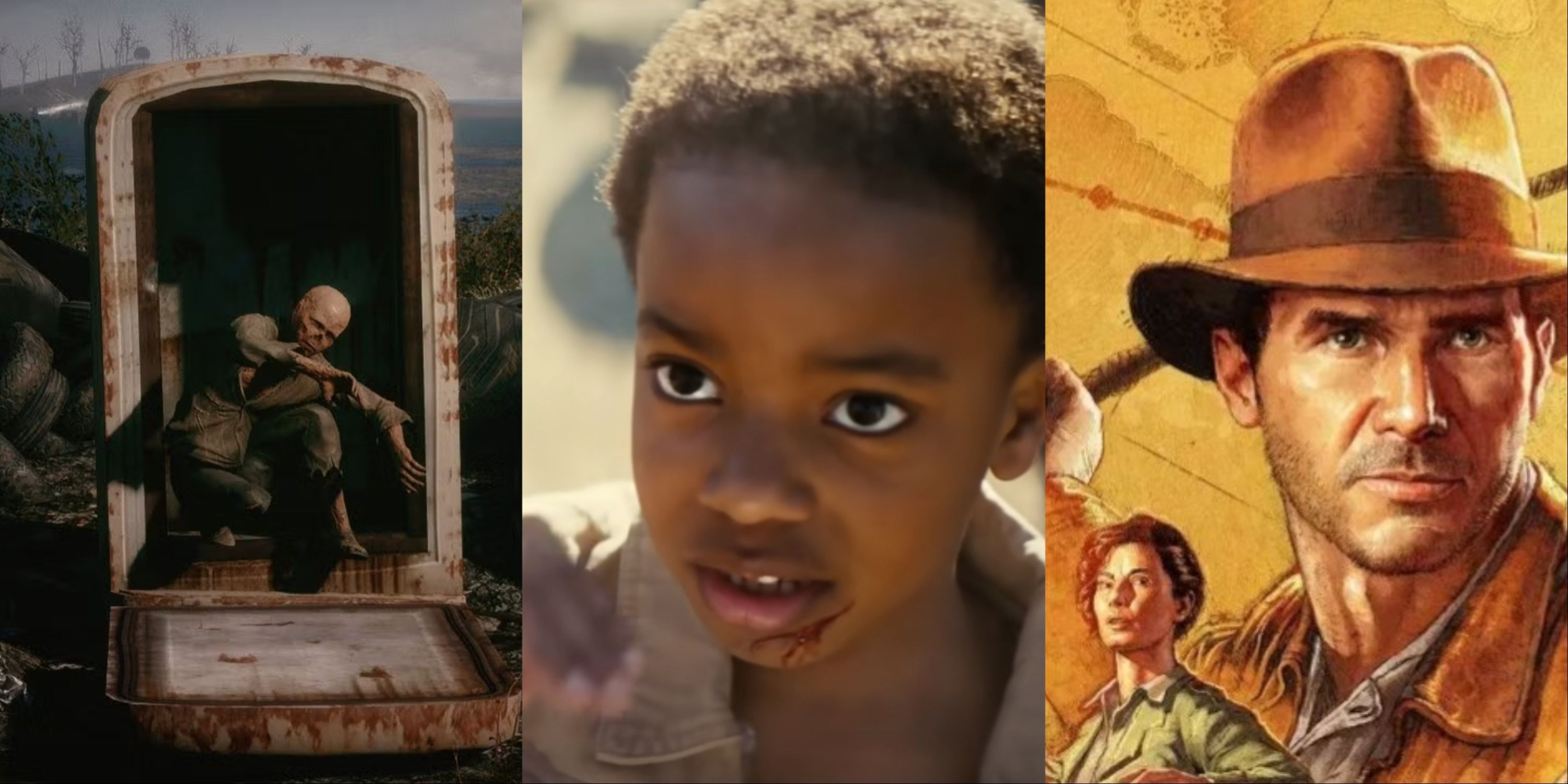
The Fallout TV show makes an excellent video game adaptation because of its authenticity to the source material, careful attention to detail, and its ability to pick and pull elements from the Fallout video games while crafting an original story for television. It’s riddled with hidden references, and the refrigerator is another one of them.
At one point in the show, it’s revealed that a character becomes dependent on a fridge for survival, but there are really two parts to explaining why this scene is so essential to both Fallout and Bethesda, which may have passed you by. Here’s all the background info you need to know about its significance.
What’s The Context Of The Refrigerator In The Fallout Show?
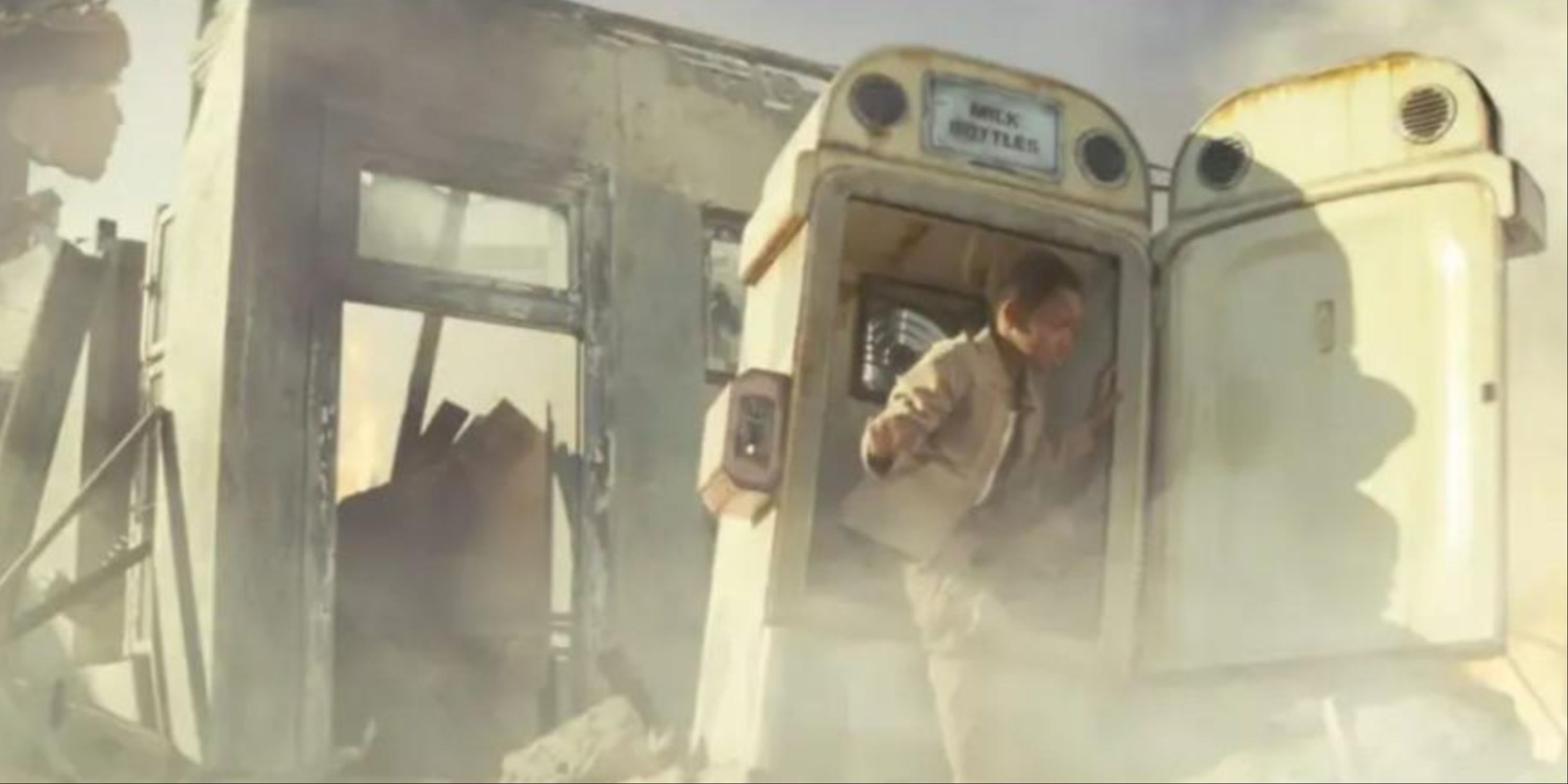
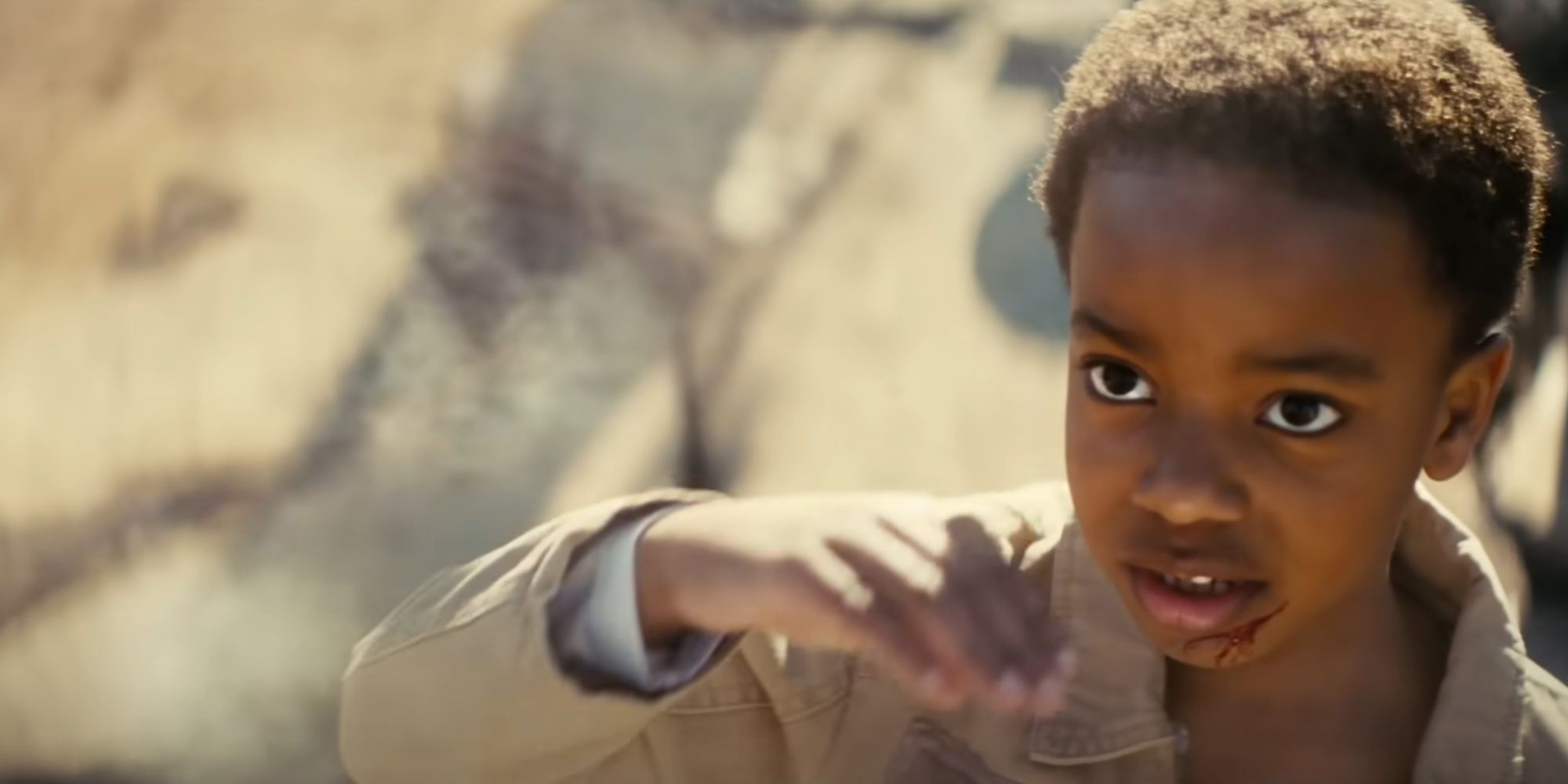
In the Fallout show, you learn that Maximus survived the Shady Sands bombing when he was just a little boy by hiding inside a refrigerator meant for storing milk bottles. A Brotherhood Knight finds him shortly after he comes out of the fridge and the rest is history.
The fridge seemed to have saved Maximus’ life when everything and everyone around him got annihilated by the nuclear blast, including his family. It’s also a pivotal flashback that’s constantly revisited.
While you might think it’s an act of desperation by Maximus’ parents to ensure his survival, this moment is actually a reference to two Bethesda video game properties, one being Fallout 4 and the other being Indiana Jones.
How Is The Refrigerator Scene Connected To Fallout 4?
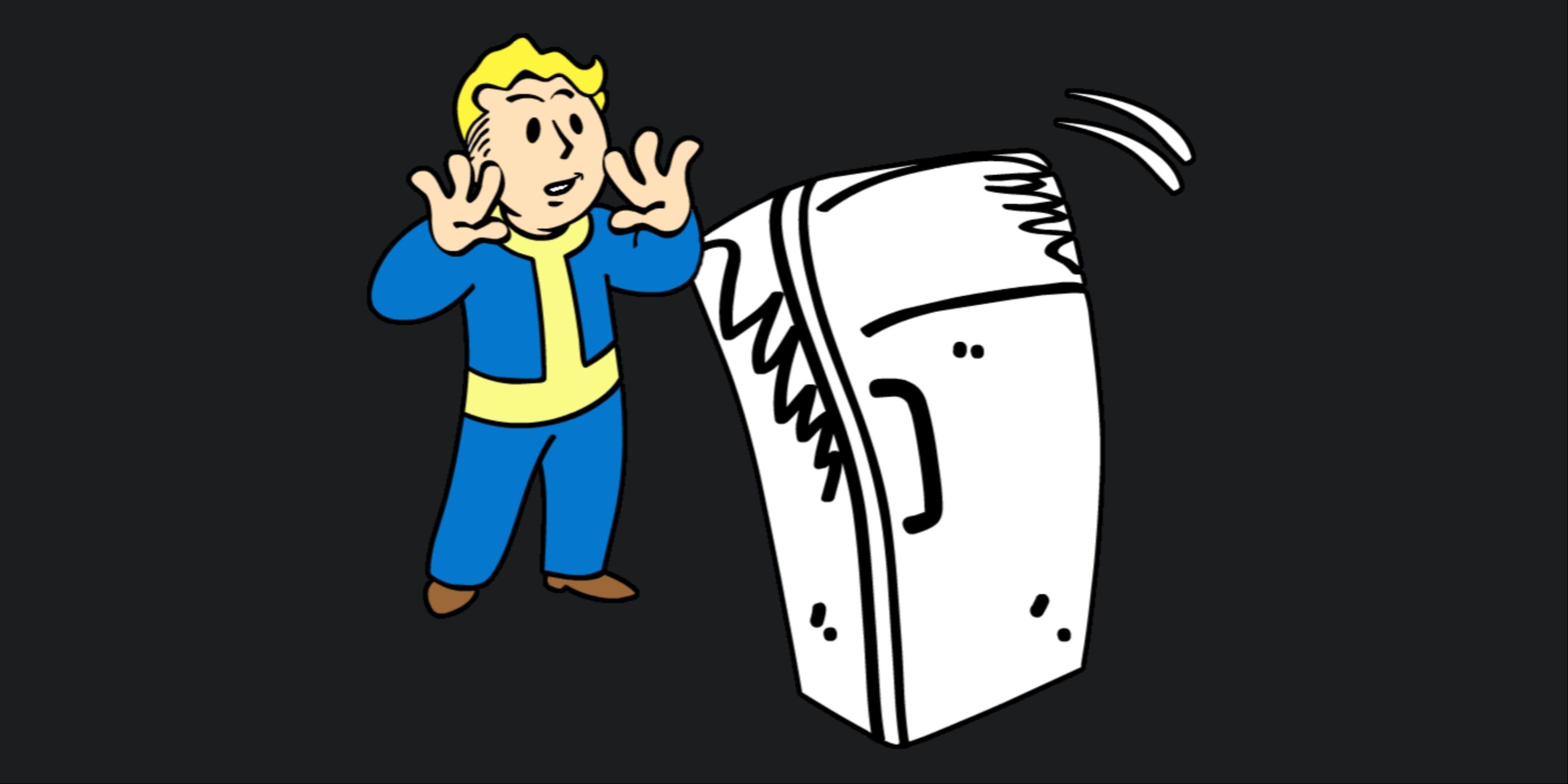
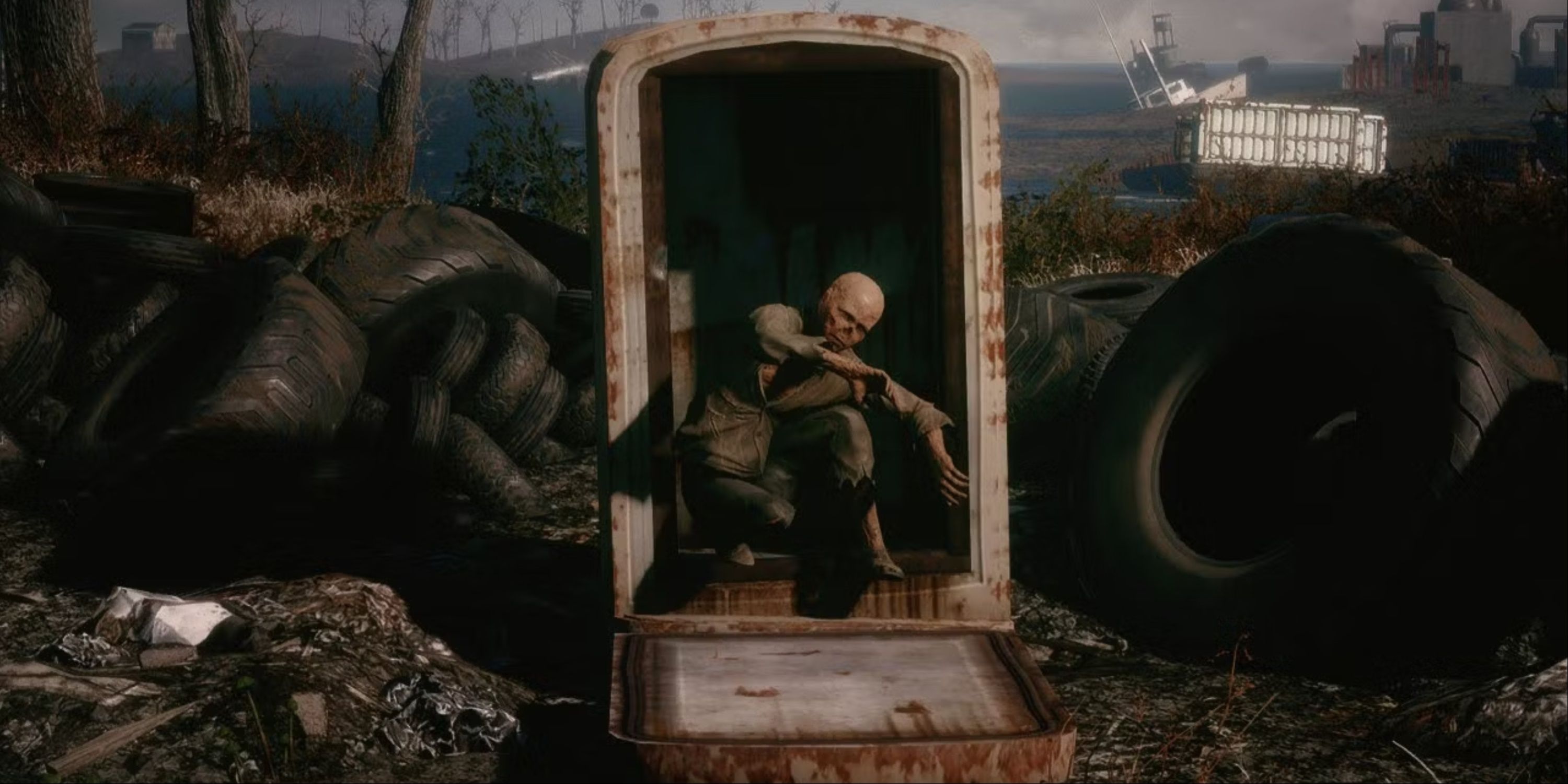
In Fallout 4, there’s a side quest called ‘Kid in a Fridge’ in which you get to meet a Ghoulified child named Billy Peabody. He has been locked inside a fridge for well over 200 years since the bombs dropped.
The fridge is located south of University Point, and that’s where Billy was by the time the nuclear bombs hit, climbing into a fridge and locking himself from the inside without realizing it.
Billy’s transformation into a Ghoul and surviving all this time since the Great War trapped in a fridge still remains somewhat of a puzzling anomaly in Fallout lore, and that’s why the Ghoul in a fridge has become so iconic.
The Ghoul in the Fallout TV series is also portrayed as being able to survive in hibernation , buried underground in a coffin that’s dug up at the beginning of the show.
The director and executive producer of Amazon Prime Video’s Fallout, Jonathan Nolan, revealed in an IGN interview that he and his wife, co-executive producer Lisa Joy, “played some of Fallout 4 when developing seasons of Westworld.”
It sounds like the ‘Kid in a Fridge’ was a light bulb of a side quest for Nolan as to how they could incorporate that bit into a plot point for the show.
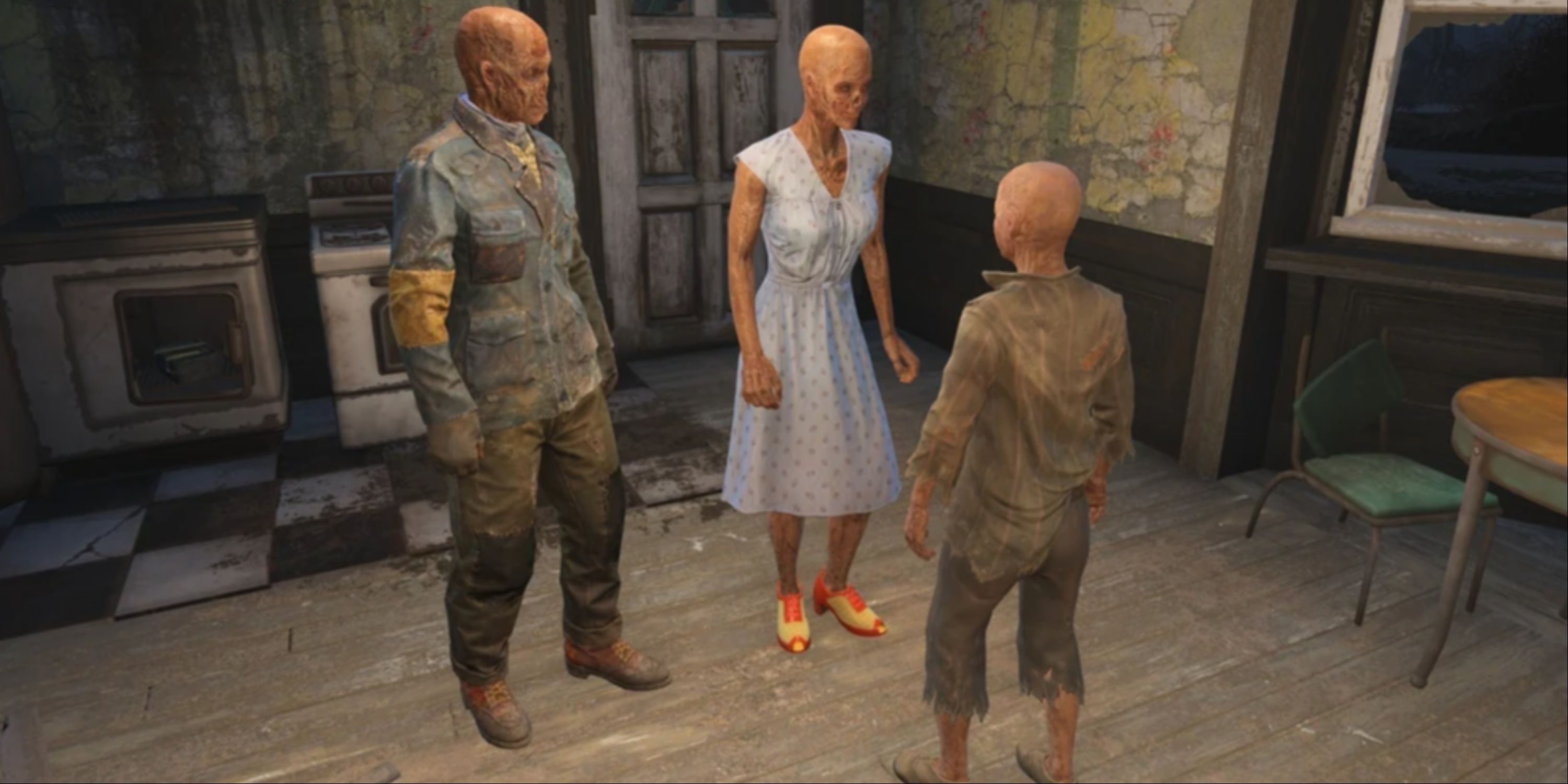
In this quest also comes a big decision. Now that you’ve rescued Billy Peabody from his refrigerated captivity, you must decide what to do with him. You can either sell him off for labor to a Gunner named Bullet or help him reunite with his parents (who are alive and surprisingly not that far away).
Unfortunately, Maximus doesn’t get the same happy family reunion as Billy in Fallout 4, but then again, Maximus also doesn’t have to suffer through being a Ghoul.
How Is The Refrigerator Scene Connected To Indiana Jones?
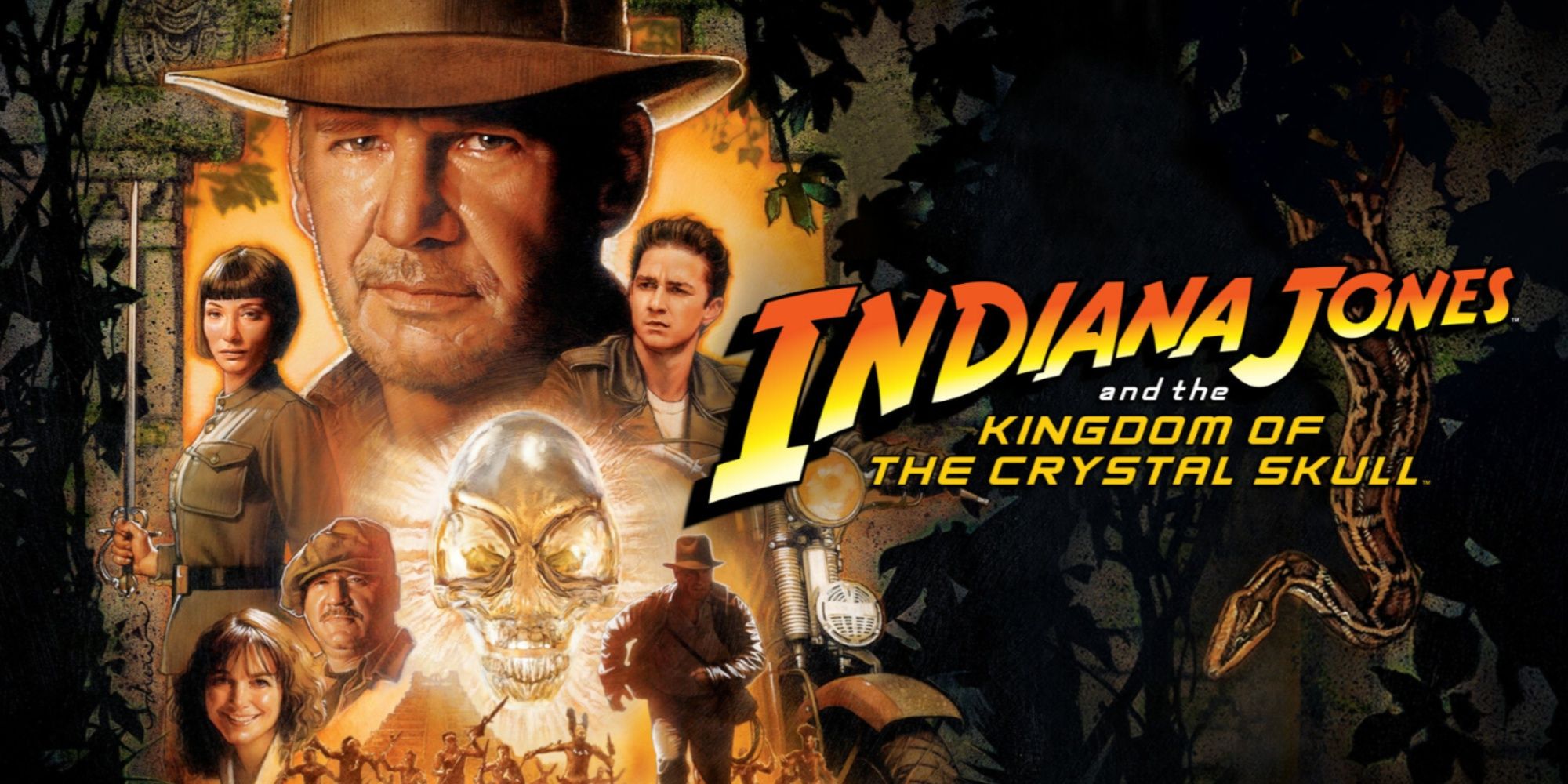
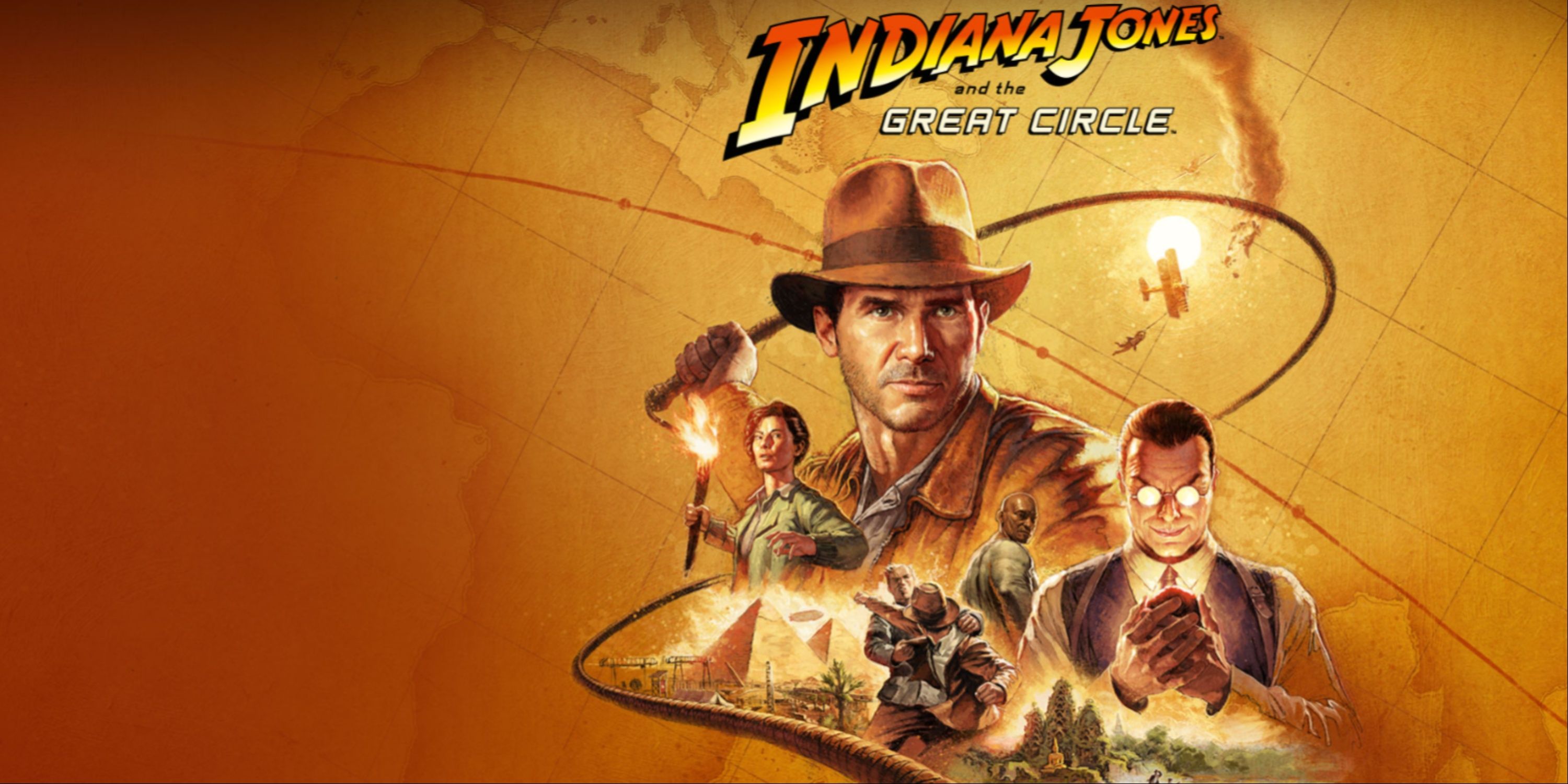
The idea of a character surviving a nuclear bomb while inside a fridge also certainly didn’t come from Fallout 4 but instead originated from 2008’s Indiana Jones and the Kingdom of the Crystal Skull.
And now, with Bethesda and Todd Howard publishing and executive producing MachineGames’ Xbox-exclusive Indiana Jones and the Great Circle, the fridge moment truly comes full circle in the Fallout TV show.
Early on in Kingdom of the Crystal Skull, Indy enters an artificial town that’s constructed to be a part of a nuclear bomb test in Nevada, taking place in 1957 and modeled somewhat similar to the retrofuturistic Sanctuary Hills suburbia in Fallout 4.
Indiana Jones stumbles upon this town right as the test is about to begin and the countdown goes live. To escape the blast and resulting nuclear fallout, he thinks on his feet and manages to squeeze himself into a lead-lined fridge, which gets sent flying out of the town by the impact.
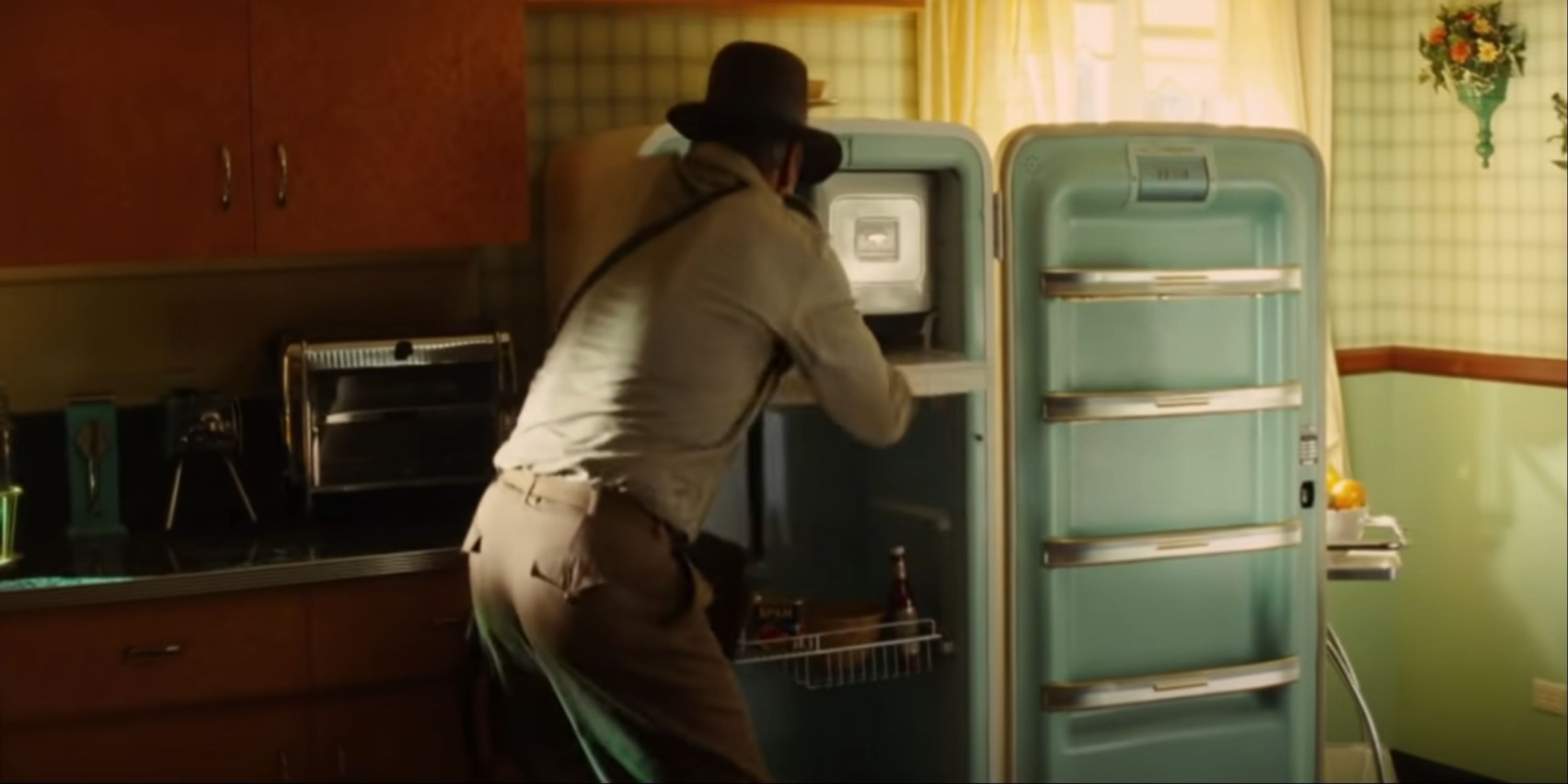
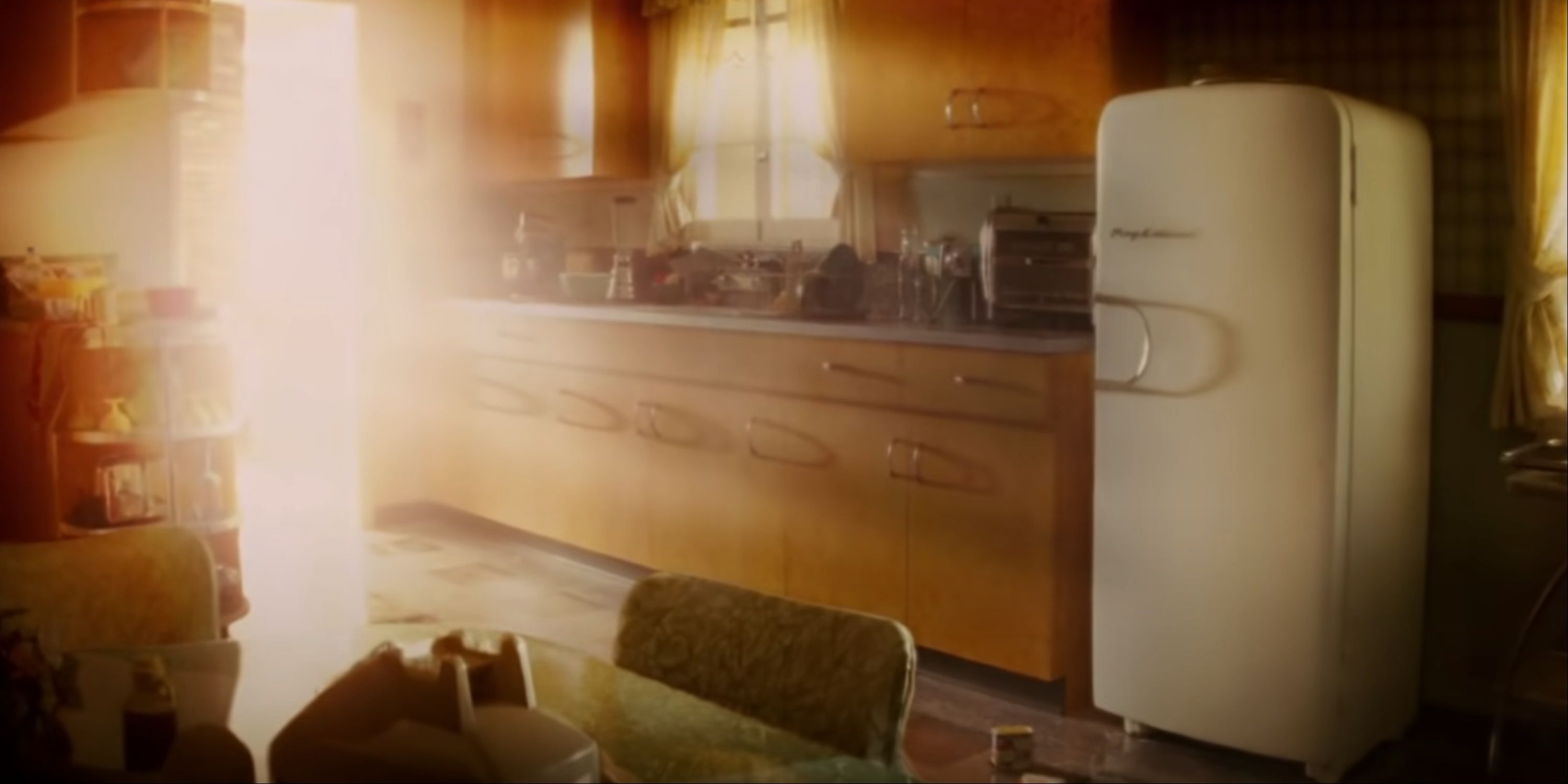
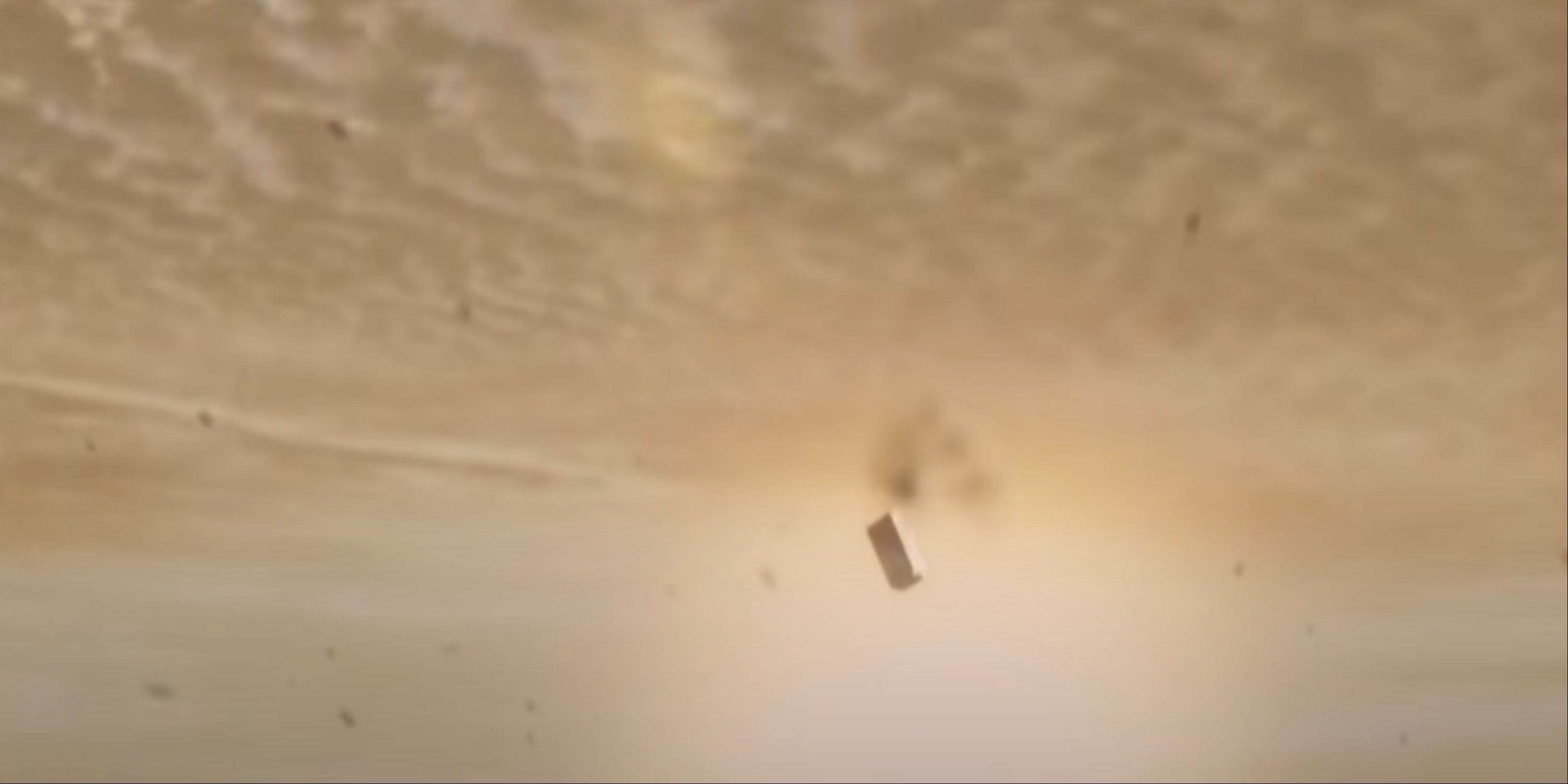
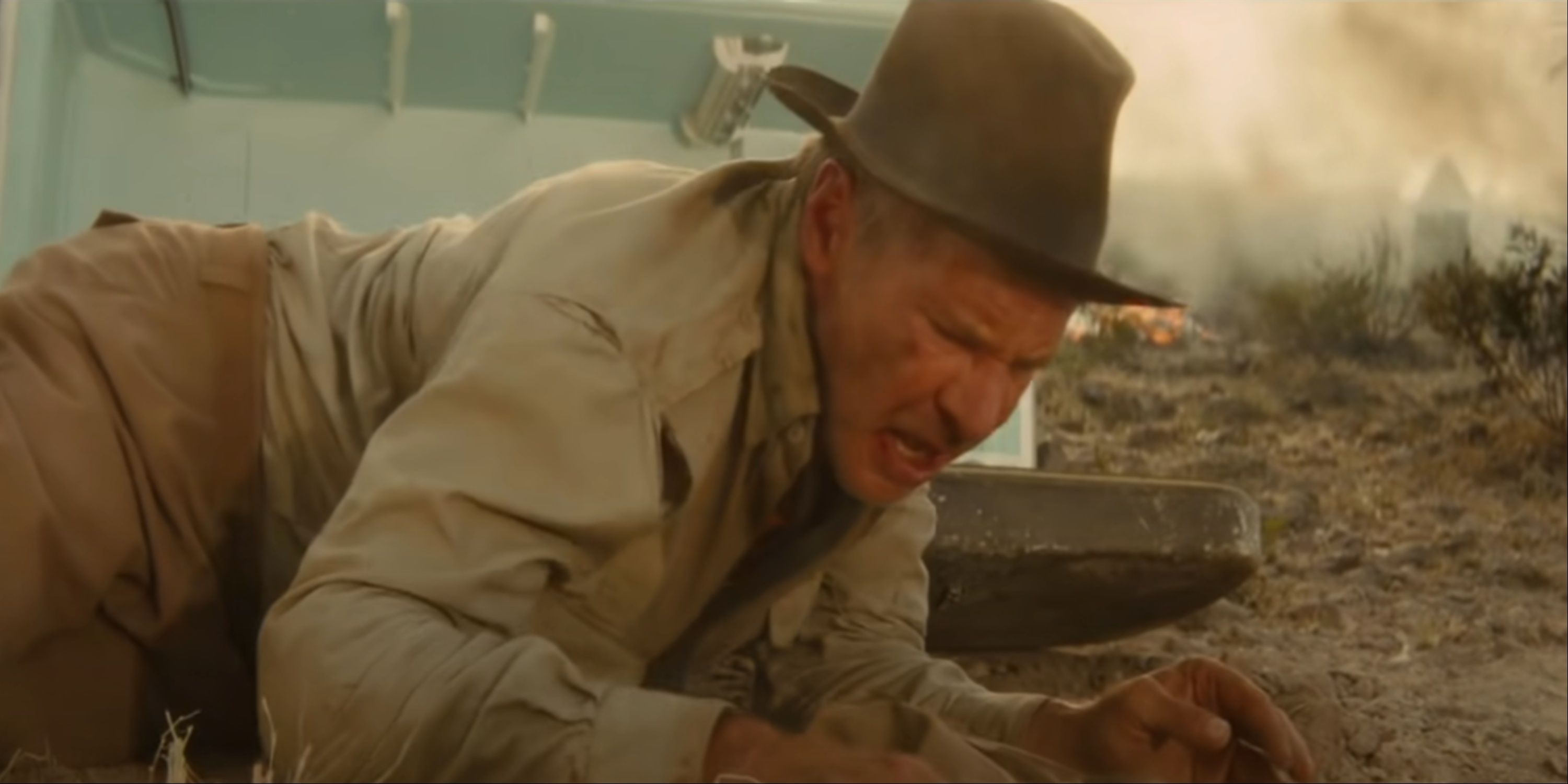
When the fridge eventually lands, Indy rolls right out of it unscathed, to then go gaze up at the mushroom cloud. So having Maximus also be in the fridge to survive the Shady Sands nuke is like a nesting doll of a Fallout reference within an Indiana Jones Fallout reference.
This moment was so outrageous that it led to the coinage of the phrase “nuking the fridge,” similar to the previous term “jumping the shark,” in which a plot point can become so ridiculous, naive, and over-the-top that it becomes purely illogical and unbelievable.
The next Indiana Jones installment, The Dial of Destiny, was no different again in ‘nuking the fridge’ for its plot, and the same could apply to nearly all Fast and Furious sequels.





